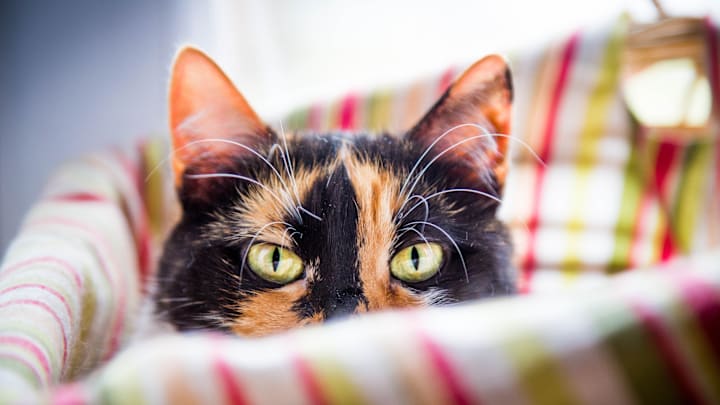Cats exhibit a wide range of behavior, from entitled to slightly less entitled. But some pet owners may have noticed that tortoiseshell-patterned or calico-patterned felines might demonstrate a more brusque temperament than cats of other stripes. Some have even given it a name: tortitude. But does this phenomenon actually exist?
According to science, it does. In 2015, the University of California, Davis published research that identified a link between a cat’s ornery disposition and ‘torties,’ or cats with an eclectic black, brown, and red coat. (Calicoes, which have a similar reputation, are white with orange and black patches) The findings, which were published in Journal of Applied Animal Welfare Science, were the result of surveying roughly 1200 cat owners on cat personalities The torties and calicoes had higher incidences of biting, hissing, scratching, and other confrontational behaviors.
In pets, it’s typically breeds that develop reputations—or stereotypes—for certain traits. But why would coat color be linked to behaviors? There’s not yet a conclusive answer, but one possibility is that the same genes that code those colors might also be responsible for aggression levels.
To be clear, neither torties nor calicoes are intolerably violent. Tortitude is more a condition of having little patience for human or other pet foolishness. Such cats may also have more frequent mood swings and enjoy more independence than other cats.
It’s also worth noting that survey respondents may have been aware of the reputation of cats with these coat colors and might have been predisposed to regard them as a little more troublesome. Cats of all stripes also need plenty of human socializing as kittens. But most who have experience with tortitude are quick to remind others that they’re mostly lovable companions. Just be prepared to give them their space.
[h/t The Seattle Times]
